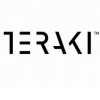- Jobsuche
- Schönefeld
- researcher
Researcher Jobs in Schönefeld
Jobalert für diese Suche erstellen
Researcher • schonefeld

Postdoctoral researcher (m / f / d)
MDCMDC Berlin-Mitte
Producer and Researcher Projekt heimaten
Kulturveranstaltungen des Bundes in Berlin GmbHBerlin
Senior User Experience Researcher (f / m / x)
HelloFreshBerlin, Germany
(Junior) UX-Researcher (m / w / d)
S-Communication Services GmbHBerlin, Berlin
Senior Researcher (w / m / d) – Organizational Research
IpsosBerlin, DE- Gesponsert

UX Researcher MWD
AVIV GroupBerlin, Berlin, Germany
Junior Researcher – India
StatistaBerlin- Gesponsert

Market Researcher International (m / w / d)
Lidl Stiftung & Co KGBerlin, DE
Researcher - Locality Expert (Automotive)
Terry SootBerlin
Freelance Labour Market Specialist / Researcher
Kiron Open Higher Education gGmbHBerlin, DE
Associate Director - Community Development (Europe)
Informa PLCBerlin, DE
(Senior) UX Researcher - Data Analytics (m / w / d)
Verivox GmbHBerlin
Postdoctoral Researcher - AFAR Project
Escuela HertieBerlin, DE
Telefonist / Researcher (m / w / d) 520 Euro Basis
APC ConsultBerlin, Germany
Deep Learning Researcher
Avo IntelligenceBerlin, Germany
Video Data Scientist / Researcher
TERAKIBerlin, Berlin
Producer and Researcher Projekt heimaten (w / m / d)
Berlin International Film FestivalBerlin, Deutschland- Gesponsert

Doctoral researcher - Educational Sciences
Université du LuxembourgBiesdorf, DE
Assistenz Producer and Researcher (w / m / d)
KBB - Kulturveranstaltungen des Bundes in Berlin GmbHBerlin, DE
Researcher / Analyst Energy System (f / m / d)
50HertzBerlin, BE, DE
Postdoctoral researcher (m / f / d)
MDCMDC Berlin-Mitte- Vollzeit
Job Description
Contributing to a shared grant between Manuel Irimia (CRG-UPF, Barcelona) and Nikolaus Rajewsky (BIMSB-MDC) the candidate will engage in dynamic and highly multidisciplinary collaborations with several groups in Berlin as well as with colleagues in the Irimia lab in Barcelona, Spain.
Alternative splicing is a major mechanism for transcriptomic diversification, affecting 95% of human multi-exonic genes. It is essential for nearly all physiological processes in which it has been studied and its pathological importance is well established, particularly in cancer and neurological disorders. However, a major limitation of most of these studies has been the lack of single-cell resolution, which has also dragged the field of single-cell omics as a whole, since it is missing this important post-transcriptional layer. This lack of resolution has been largely due to various technical reasons. Nevertheless, in recent months, important progress at the methodology and analysis levels has been made, setting the field for groundbreaking discoveries and conceptual advances.
To achieve these goals, the candidate will develop and optimize computational tools to identify and quantify alternative splicing using data generated by different methods of single-cell transcriptomics (both short and long reads). By studying different experimental systems, we aim to answer questions such as :
- How extensive is alternative splicing heterogeneity among cells of the same type?
- How does this heterogeneity compare and associate with that at the gene expression level?
- How is alternative splicing mis-regulated in individual cell types in different disease contexts?
- How much do alternative splicing profiles contribute to define cell type identity?
- How are microexons and other cell type specific exons regulated during differentiation?
- How conserved is alternative splicing at the cell type level, and can we identify novel isoforms specific to rare cell types?
Requirements
Preferred scientific background : A PhD in the fields of Bioinformatics, Functional Genomics and / or Molecular Biology.
Preferred technical expertise : The candidate should be highly experienced in computational transcriptomic analyses of single-cell RNA-seq and / or of alternative splicing. Previous experience in software development as well as successful interactions and collaborations with non-computational researchers will be highly advantageous for the application. Expertise in neurobiology and evolutionary genomics is not essential, but will be a plus.
Candidate profile : The candidate should be highly enthusiastic about engaging in collaborations, be able to work independently, and show creative thinking and proactivity.
We offer
You also benefit from :